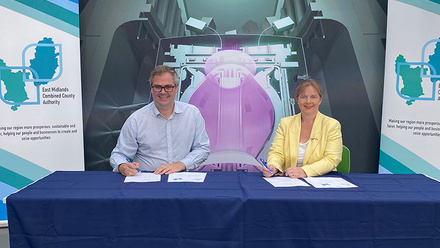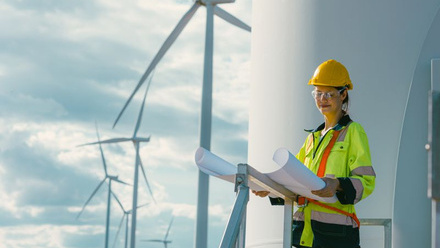Chancellor of the Exchequer delivers first major fiscal intervention of the Truss government
On Friday, Kwasi Kwarteng delivered a fiscal statement reaffirming the government’s plans for an energy bills support package and unveiling a new Growth Plan.

Alongside an array of measures relating to taxes, key announcements and commitments of interest to IOM3 members include:
- Introduction of 38 investment zones (yet to be determined) with a range of interventions including relaxed planning regulations
- Acceleration of infrastructure projects including bringing onshore wind planning policy in line with other infrastructure to allow it to be deployed more easily in England
- Driving development of hydrogen, carbon capture, utilisation, and storage and renewable technologies
- The North Sea Transition Authority will launch a new oil and gas licensing round expected to deliver over 100 new licenses
- An end to the pause on extracting reserves of shale
- A reiteration of £2.1bn previously pledged plus an extra £1bn for energy efficiency over 3 years
It is good to see recognition of the role of renewables in boosting growth and that the government is taking steps to reform the offshore wind planning process and bringing onshore policy in line with other infrastructure to facilitate easier deployment in England.
As IOM3 has previously said, we cannot move away from oil and gas immediately, so where oil and gas produced in the UK is less carbon intensive than that produced elsewhere, it is right that we continue to extract and use it in preference to other, more damaging sources.
It is disappointing, however, that energy efficiency continues to receive such little focus. Whilst the additional measures worth £1bn over a three-year period signal some progress, measures fall significantly short of the action required and significant opportunities available. Demand-side measures including cost-effective short-term action to improve energy efficiency, combined with long-term targets and delivery mechanisms would help with the cost-of-living crisis, as well as accelerating the transition to net-zero and improve energy security.
The government’s commitment to accelerate ‘the delivery of priority major infrastructure projects across the country, as a vital means of driving the UK’s economic growth, increasing long-term energy security, and delivering net-zero’ is welcome in principle. Carbon-intensive, strategically important industries need the support and infrastructure required to decarbonise alongside delivering jobs and growth.
Transitioning to a low-carbon, resource efficient economy must remain at the heart of decision making. In addition, it is important that addressing barriers and reducing unnecessary burdens to deliver major infrastructure projects and the 38 investment zones does not weaken key environmental protections.
While a series of significant announcements, substantial details are yet to be finalised. The Chancellor confirmed he will set out a Medium-Term Fiscal Plan on 23 November and that there will be a Budget in the Spring.
The fiscal event followed publication on Thursday (22 September) of the full draft of the Retained EU Law (Revocation and Reform) Bill which seeks to introduce a sunset clause with a deadline of December 2023. This sets up an incredibly unmanageable timetable to review crucial EU laws which cover a wide array of issues that were brought over during Britain leaving the European Union to avoid gaps and legal uncertainty.
There are over 2,400 pieces of regulation and for Defra alone, with responsibility for over 500, the current deadline allows for less than one day to focus on each law. The unachievable timetable, automatic expiration of laws that are not replaced or restated, and the very limited opportunity for parliamentary or public scrutiny throughout this process is extremely concerning. The regulatory uncertainty that this creates will also have a negative impact on investor confidence and on the ability of the materials, minerals, and mining sectors to make the investments necessary to keep us on track to make the necessary transition to a low-carbon, resilient and resource-efficient society.
Read more about the Revocation and Reform Bill and the Growth Plan 2022.







